Service Mobile

How do I contact customer service for my mobile operator ?
How to Contact Customer Service for Your Mobile Operator

How do I set up a VPN service on my computer or mobile device ?
Setting up a VPN (Virtual Private Network) is an excellent way to ensure your online privacy, bypass geo-restrictions, and enhance your security on the internet. Here's a detailed guide to setting up a VPN service on your computer or mobile device: 1. Choose a VPN Service Provider: Research and select a reliable VPN service that suits your needs in terms of security, speed, and price. Ensure the provider offers apps for your operating system, whether it's Windows, macOS, Android, or iOS. 2. Sign Up for the Service: Visit the VPN service website and sign up for an account. Choose a payment plan and complete the subscription process. 3. Download and Install the VPN App: Once you have subscribed, download the VPN app from your provider's website or your device's app store. Install the app on your device following the standard installation procedures. 4. Configure the VPN App: Open the VPN app and log in using your account credentials. Select a server location; usually, the app will recommend the fastest or closest server to you. Customize the settings if needed, such as enabling startup with Windows or configuring the kill switch feature. 5. Connect to the VPN: Click the connect button in the VPN app to establish a connection to the chosen server. A secure and encrypted tunnel will be created between your device and the server. 6. Verify the VPN Connection: Check your IP address and location using online services like `ipleak.net` to ensure your real identity is concealed. Test the connection by trying to access content that is normally blocked in your region. 7. Troubleshooting: If you encounter connection issues, check your network settings or try connecting to a different server. Make sure your firewall and antivirus software are not blocking the VPN connection. 8. Regular Maintenance and Updates: Keep your VPN app updated to benefit from the latest security features and performance improvements. Monitor your data usage if your VPN service has bandwidth limitations. Additional Considerations: Look for VPN services that offer strong encryption protocols like OpenVPN or IKEv2 for maximum security. Ensure that your VPN service has a strict no-logs policy to protect your online activities from being recorded. Some VPN services allow multiple devices to be connected simultaneously under one account – consider this feature if you use multiple devices.
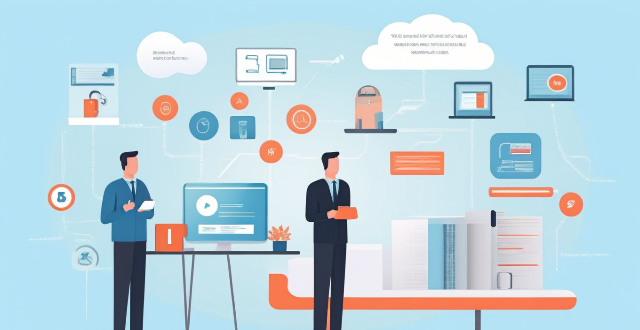
What are the best mobile operators in my area ?
Choosing the best mobile operator in your area requires careful consideration of several factors, including coverage, data speeds, pricing, customer service, and network reliability. Some of the best options based on these criteria are Verizon, AT&T, and T-Mobile. Each operator has its own strengths and weaknesses, so it's important to do your research and choose the one that best meets your needs and budget.
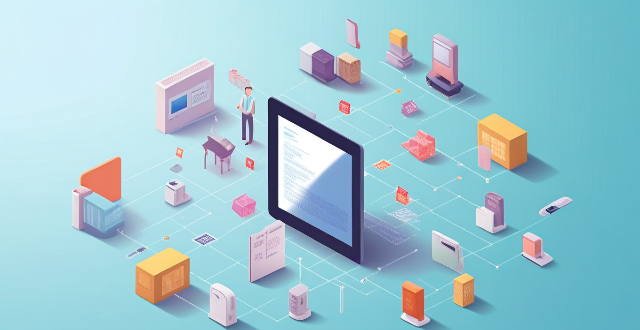
How do wireless communication standards affect mobile devices ?
Wireless communication standards significantly impact mobile devices' performance, functionality, and user experience. They influence speed and bandwidth, latency, connectivity range, compatibility with different networks, interoperability, security features, battery life, quality of service, mobility and portability, and device form factors. Advances in these standards drive innovation in the mobile industry, leading to faster, more reliable devices offering richer experiences to consumers.

How does network coverage vary between different mobile carriers ?
Network coverage among mobile carriers varies due to differences in infrastructure investments, partnerships and roaming agreements, and technological advancements. Carriers that invest heavily in building and maintaining their network infrastructure are likely to have more extensive coverage than those with limited resources. Partnerships and roaming agreements allow customers to use the partner network's services in areas where the original carrier does not have coverage. Technological advancements like 5G promise faster speeds and better coverage, especially in densely populated urban areas. The geographic coverage of mobile carriers varies significantly, with some carriers focusing on providing extensive coverage across large regions while others prioritize dense urban areas. Speed and capacity also differ among carriers, with those having more advanced infrastructure and technologies typically offering higher speeds and greater capacity. Quality of service is another factor that varies among mobile carriers, including aspects such as call clarity, connection reliability, and data transfer rates. Customers should consider these factors when choosing a carrier to ensure reliable and efficient mobile connectivity.

How can I check my data usage on my current mobile operator's plan ?
This is a step-by-step guide on how to check your data usage on your mobile operator's plan. The first step is to access your mobile operator's self-service portal and log into your account. Once logged in, navigate to the data usage section where you can find information about your current balance, recent transactions, and data usage. The second step is to use USSD codes provided by some mobile operators that allow you to dial a code from your phone to get information about your data usage. Follow the instructions carefully after dialing the USSD code. The third step is to check through SMS by sending a specific message to a specific number provided by your mobile operator. You will receive a response message with details about your remaining data balance and validity period. If none of these methods work, you can contact customer support by calling or chatting with them online. They may ask for some verification details before providing the information. Lastly, you can use third-party apps available on app stores that can help you track your data usage and provide regular updates.
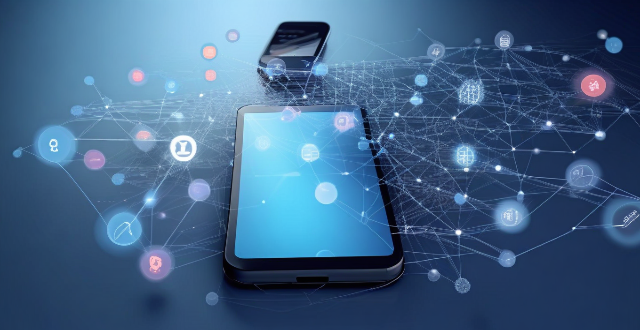
What are the best practices for mobile network optimization ?
The article provides best practices for mobile network optimization, which are crucial for ensuring seamless connectivity and efficient data transfer. The practices include proper site selection, cell configuration, spectrum allocation, power control, antenna selection, frequency reuse, load balancing, congestion control, QoS, regular maintenance, fault detection and resolution, performance monitoring, authentication and authorization, encryption, and intrusion detection and prevention. By following these practices, mobile network operators can optimize their networks for better performance, reliability, and security, ultimately providing a better user experience for their customers.
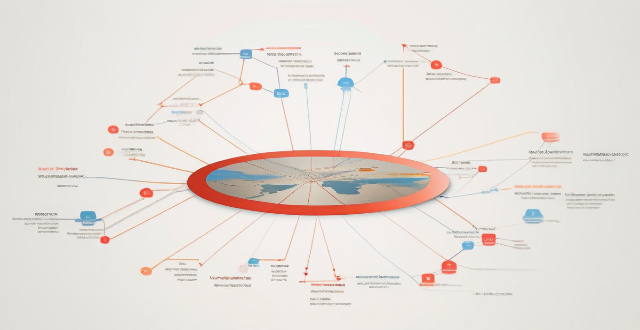
Can I use my unlimited data plan for tethering or mobile hotspot ?
Using unlimited data plan for tethering or mobile hotspot is possible, but it's important to understand the potential restrictions and limitations associated with doing so. Always check with your carrier to ensure you fully understand the terms of your unlimited data plan.

How can I improve my mobile photography skills ?
In this guide, we've covered essential tips and strategies to enhance your mobile photography skills. By understanding camera settings, mastering composition techniques, experimenting with lighting, getting creative with perspectives, editing photos effectively, and practicing consistently, you can elevate your smartphone photography game. Remember, the key to improving lies in your willingness to learn, explore, and practice. With dedication and creativity, you can turn your mobile device into a powerful tool for capturing stunning visual stories.

Should I use a bank or a currency exchange service ?
When it comes to exchanging currencies, you have two main options: banks and currency exchange services. Both have their advantages and disadvantages, so it's important to consider your specific needs before making a decision. Advantages of Using a Bank: - Security: Banks are generally considered more secure than currency exchange services because they are regulated by government agencies. Your money is protected by insurance policies, such as the Federal Deposit Insurance Corporation (FDIC) in the United States. - Convenience: Many banks offer online and mobile banking services, allowing you to easily manage your account and make transactions from anywhere. You can also withdraw cash from ATMs worldwide without additional fees. - Fees: Banks typically charge lower fees for currency exchange compared to currency exchange services. Some banks even offer fee-free currency exchange if you have an account with them. Advantages of Using a Currency Exchange Service: - Better Exchange Rates: Currency exchange services often offer better exchange rates than banks because they specialize in foreign currency exchange. This means you can get more money for your currency than if you were to use a bank. - No Fees: Many currency exchange services do not charge any fees for exchanging currencies. However, some may still charge a small commission or service fee. - Speed: Currency exchange services are usually faster than banks when it comes to exchanging currencies. They often have shorter processing times and can provide you with the currency you need quickly. Disadvantages of Using a Bank: - Limited Availability: Not all banks offer foreign currency exchange services, especially smaller local banks. You may need to visit multiple banks to find one that offers this service. - Higher Fees: As mentioned earlier, banks typically charge higher fees for currency exchange compared to currency exchange services. This can add up quickly if you need to exchange large amounts of currency. Disadvantages of Using a Currency Exchange Service: - Security Risks: Currency exchange services are not regulated by government agencies like banks are. This means there is a higher risk of fraud or theft when using these services. - Limited Locations: Currency exchange services may not be available in all locations, especially in rural areas or smaller towns. You may need to travel to a larger city or airport to find one. - Limited Services: Currency exchange services typically only offer foreign currency exchange and do not provide other banking services like checking accounts or loans. If you need additional financial services, you will need to use a separate bank.

Are there any discounts or promotions available for switching to a new mobile operator ?
When considering switching to a new mobile operator, itWhen considering switching to a new mobile operator, it if there are any discounts or we will explore the various incentives that mobile operators may offer to attract new customers and retain existing ones. These incentives can include sign-up bonuses, referral programs, trade-in deals, and loyalty rewards. However, it's essential to consider factors such as contract terms, coverage, hidden fees, and compatibility before making the switch. By weighing these factors carefully, you can make an informed decision about whether switching to a new mobile operator is right for you.

What happens if I don't register my SIM card ?
Registering a SIM card is an essential process for using mobile services. If you don't register your SIM card, there are several consequences that you may face, including limited access to mobile services, inability to activate additional features, difficulty in resolving issues, potential legal implications, and inability to prove ownership. It is important to understand the local laws regarding SIM card registration before deciding not to register. Registering your SIM card ensures full access to mobile services, ability to activate additional features, easier issue resolution, compliance with legal requirements, and proof of ownership.
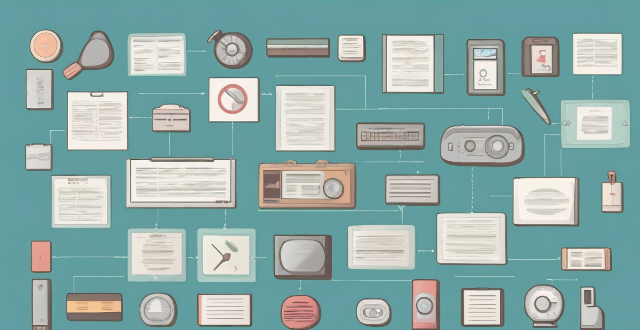
What are the hidden fees associated with my mobile operator's plan ?
Mobile operators often have hidden fees that can add up over time and significantly increase the cost of your mobile plan. These fees include activation fees, early termination fees, upgrade fees, overage charges, international roaming charges, and administrative fees. To avoid these fees, it is important to read the fine print of your mobile operator's contract carefully before signing up and consider using a prepaid plan or paying for your phone outright.

Can I register a SIM card online ?
The process of registering a SIM card online involves choosing a mobile network operator, visiting their website, entering personal information, activating the SIM card, waiting for confirmation, and starting to use the new SIM card. It is a convenient and easy process that allows users to activate their mobile service without having to visit a store in person.

What is mobile marketing and why is it important ?
Mobile marketing is the use of mobile devices to promote products or services. It involves sending targeted messages, offers, and advertisements to users who are on the move, in real-time. This type of marketing can be done through various channels including SMS, email, social media, apps, and mobile websites. Mobile marketing is important for several reasons: 1. Reach a Wider Audience: With the increasing popularity of mobile devices, businesses can reach a larger audience through mobile marketing. 2. Higher Engagement Rates: People spend more time on their mobile devices than any other medium, making them more likely to engage with your content and respond to your calls-to-action. 3. Increased Conversion Rates: Mobile marketing allows businesses to target their audience based on location, behavior, and preferences, resulting in higher conversion rates. 4. Improved Customer Loyalty: By providing personalized experiences and offers through mobile marketing, businesses can build stronger relationships with their customers and increase loyalty. 5. Cost-Effective: Compared to traditional marketing methods, mobile marketing is often more cost-effective with a higher return on investment (ROI). 6. Real-Time Tracking and Analytics: Mobile marketing provides businesses with real-time data and analytics about their campaigns, allowing them to make informed decisions and optimize their strategies for better results. 7. Enhanced Brand Recognition: By using mobile marketing, businesses can create a strong brand identity and increase brand recognition among their target audience. 8. Stay Ahead of the Competition: As more businesses adopt mobile marketing strategies, those who do not will fall behind. Staying ahead of the competition is crucial for long-term success.
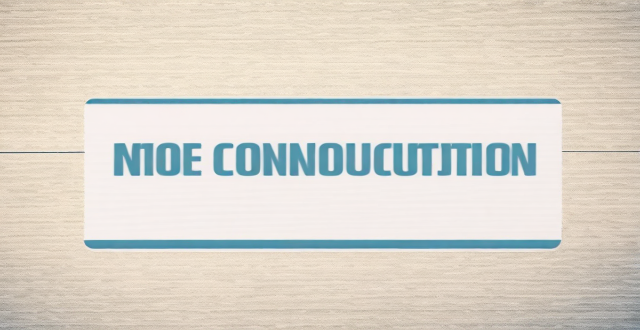
How has mobile communication technology changed the way we communicate ?
The text discusses the impact of mobile communication technology on our communication. It highlights how this technology has revolutionized communication by making it faster, more convenient, and accessible. The text also mentions the rise of social media platforms and their influence on relationships. Additionally, it emphasizes the transformative effect of mobile communication technology on work collaboration and productivity. Moreover, it points out how this technology has made communication more accessible to people with disabilities or from developing countries. Lastly, the text acknowledges the privacy and security concerns associated with mobile communication technology.

How can I stay safe while using mobile banking apps ?
The text provides a detailed guide on how to ensure the safety of personal and financial information while using mobile banking apps. It suggests downloading apps from official app stores, keeping them updated, setting up multi-factor authentication, using strong passwords, being cautious with public Wi-Fi, monitoring account regularly, not saving log-in details, and being wary of phishing scams. These measures can significantly enhance the security of mobile banking activities and protect financial information from potential threats.

How can mobile communication technology be used to enhance education ?
Mobile communication technology has revolutionized the way we live, work, and learn. It has opened up new avenues for education, making it more accessible, interactive, and engaging. Here are some ways in which mobile communication technology can be used to enhance education: 1. Personalized Learning: Mobile devices enable students to learn at their own pace and style. They can access educational content anytime, anywhere, and tailor their learning experience to their individual needs. This personalized approach helps students stay motivated and improves their retention of information. 2. Collaborative Learning: Mobile devices facilitate collaboration among students and between students and teachers. They allow for real-time communication, sharing of ideas, and collaborative projects. 3. Access to Information: Mobile devices provide instant access to a vast repository of information, including e-books, research papers, and educational videos. This allows students to deepen their understanding of topics beyond the classroom setting. 4. Interactive Learning Tools: Mobile technology offers various interactive tools such as simulations, virtual labs, and augmented reality applications that enhance the learning experience by providing hands-on practice without the need for physical resources. 5. Assessment and Feedback: Mobile technology enables timely assessment and feedback mechanisms, helping teachers monitor student progress and address gaps in understanding promptly. 6. Professional Development for Teachers: Mobile technology also supports continuous professional development for teachers by offering training courses, webinars, and networking opportunities accessible from their devices. 7. In conclusion, mobile communication technology holds immense potential to transform education by making it more personalized, collaborative, accessible, interactive, and effective. By leveraging these tools strategically, educators can create an engaging learning environment that prepares students for success in the digital age.

Are iPhone parallel imports eligible for Apple's after-sales service ?
iPhone parallel imports can be eligible for Apple's after-sales service if they meet certain conditions, including proof of purchase, valid warranty, no tampering, and region compatibility.
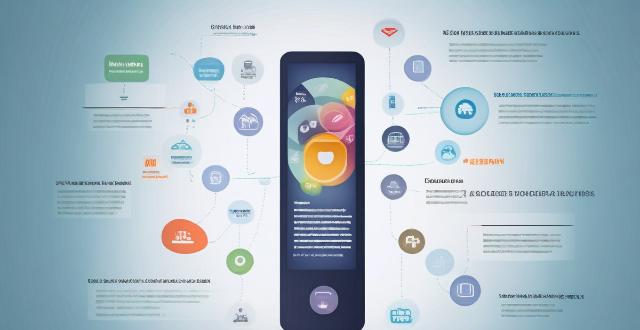
Can I use my phone abroad with my current mobile operator's plan ?
Using your phone abroad with your current mobile operator's plan can be convenient but comes with potential costs and limitations. Factors to consider include coverage area, international roaming charges, alternative options such as local SIM cards or Wi-Fi, data usage, and call and text message rates. Before traveling, contact your mobile operator to discuss options, research local networks, download necessary apps, and backup important data. Taking these steps can help you stay connected while avoiding unexpected charges.
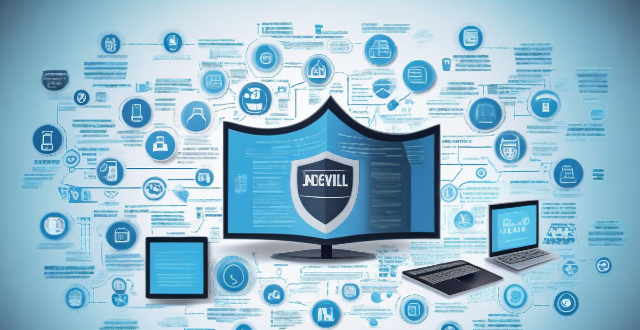
How does a VPN service work ?
A VPN (Virtual Private Network) is a service that encrypts users' internet traffic and masks their IP addresses to protect their privacy and security online. It consists of a client software installed on the user's device and a server that acts as an intermediary between the user and the internet. VPNs use tunneling protocols and encryption algorithms to establish secure connections, with options for both automated and manual configuration methods. They are particularly useful in masking users' IP addresses and ensuring data transmission security. However, some VPN services may impact internet speeds and raise privacy concerns if they collect and sell user data. When choosing a VPN service, consider its performance, reliability, and privacy policy.
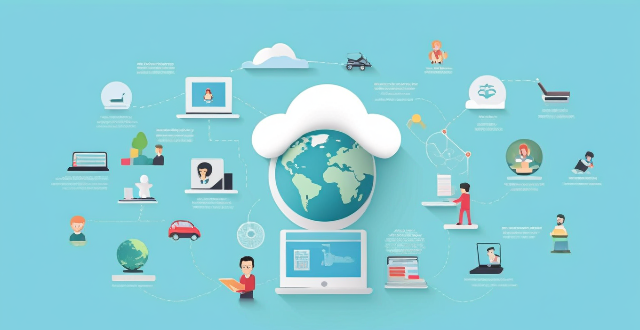
Can mobile apps help with earthquake detection and response ?
Mobile apps can significantly contribute to earthquake detection and response by providing immediate alerts and enhancing the detection network. These apps use smartphone accelerometers to sense seismic waves, aggregate data from multiple devices, and rapidly identify quake epicenters. Key features include real-time alerts, customizable thresholds, and widespread infrastructure. Benefits include critical warning time and low implementation cost, but limitations such as dependency on user devices and infrastructure availability exist. Top apps like Google's Early Warning System and MyShake aid in earthquake detection, and best practices include ensuring proper configuration, staying updated, and active participation. Mobile apps offer a cost-effective solution for disaster response and management globally.